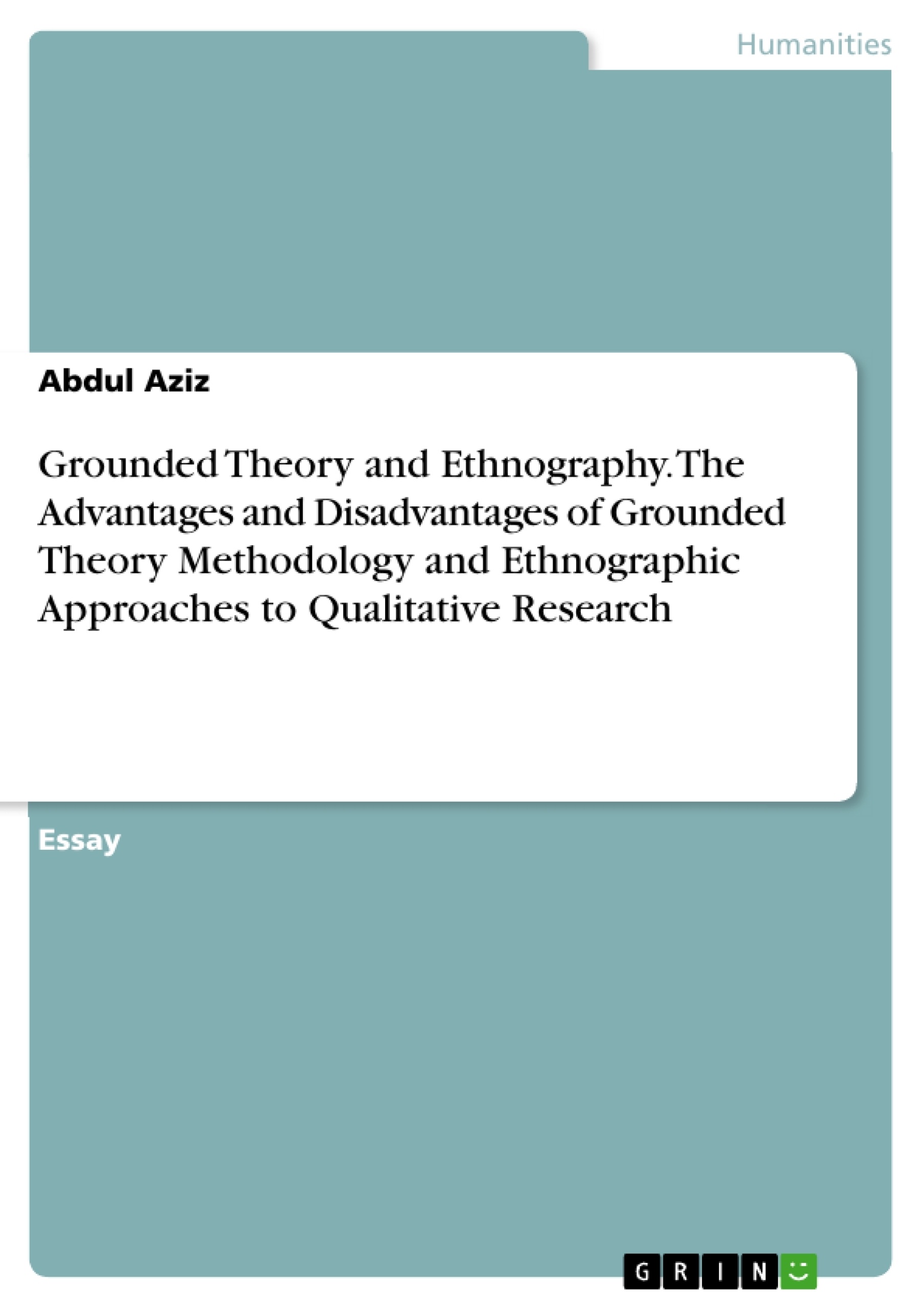This paper examines two qualitative approaches to research and assert the argument that the foundations of good research depend on the mastery of the researcher to deploy the correct methodology for the chosen research area by paying attention to the crucial factors of a well planned systematic approach to research.
The paper argues that both Grounded Theory and Ethnographic approaches can facilitate research that renders a reading that is both informative and clearly understandable in a format that is easily absorbed and understood by the reader which is honest unbiased and transparent, that can establish a workable set of outcomes that maintain interest and benefit the reader, researcher, sponsor and decision makers.
Frequently asked questions
What is the main topic of this document?
This document provides a comparison and contrasting of two analytic schemes for qualitative data analysis: Grounded Theory and Ethnographic Research.
What is the Grounded Theory Approach?
The Grounded Theory Approach involves generating theory and doing social research as a single process. It challenges the notion of testing hypotheses beforehand and instead suggests building concepts and theories from research and analysis.
What are the key stages of data analysis in Grounded Theory?
Data analysis in Grounded Theory includes open coding (creating values, categories, and labels), axial coding (structuring data to establish relationships between categories), and selective coding (identifying core themes leading to the narrative and theory emergence). The theory grounding continues with refinement and validation through hypothesis testing.
What are the different perspectives on Grounded Theory analysis?
There are differing views on grounded theory analysis between Barney Glaser, Anselm Strauss and Kathy Charmaz. Glaser was considered a puritan of grounded theory, arguing that theory should emerge from constant comparison. Strauss and Corbin offered a more structured approach, while Charmaz advocated for a modern constructivist approach, emphasizing the importance of how people construct their social reality.
What is the Ethnographic Research Approach?
The Ethnographic Research Approach involves the researcher participating in people's daily lives for an extended period, observing what happens, listening to what is said, asking questions, and collecting data to illuminate the research focus.
What does data collection for Ethnographic Research consist of?
Data collection consists of fieldwork (including direct participation and examination of secondary data), observation, structured and semi-structured interviews, and detailed documentation of observations and experiences.
What is the role of interviews in Ethnographic Research?
Ethnographic interviews differ from other methods as they aim to extrapolate meaning from collected data, allowing meanings of observed phenomena to be extracted from research subjects' everyday lives.
What are the similarities between Grounded Theory and Ethnography?
Both methods involve data production through fieldwork observation, qualitative interviews, and documentation. They are suitable for exploratory research, hypothesis generation, producing in-depth data sets, and recording attitudes, feelings, and behaviors.
What are the limitations shared by Grounded Theory and Ethnography?
Both methods can be difficult to verify and replicate due to the subjectivity of research data and potential for researcher bias. Also the collection and analysis of unstructured information can be complicated and time-consuming.
What are the implications of IT tools in qualitative data processing?
IT tools can help manage large text data and facilitate data retrieval and manipulation, but the disadvantage is that the natural narrative flow of the research may be compromised by the method of coding data and software could promote a more superficial approach to the data.
What is the conclusion of the comparison between Grounded Theory and Ethnography?
Both research approaches are valuable in their own context as qualitative approaches to research. The foundations of good research depend on attention to the factors of a well planned systematic approach that is honest, unbiased and transparent.
- Citar trabajo
- Abdul Aziz (Autor), 2015, Grounded Theory and Ethnography. The Advantages and Disadvantages of Grounded Theory Methodology and Ethnographic Approaches to Qualitative Research, Múnich, GRIN Verlag, https://www.grin.com/document/337663



